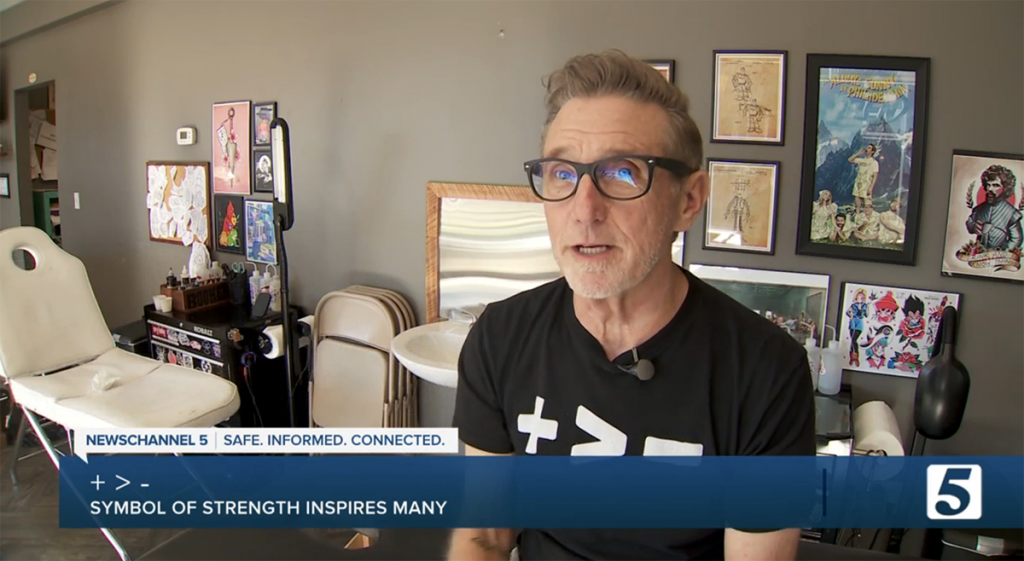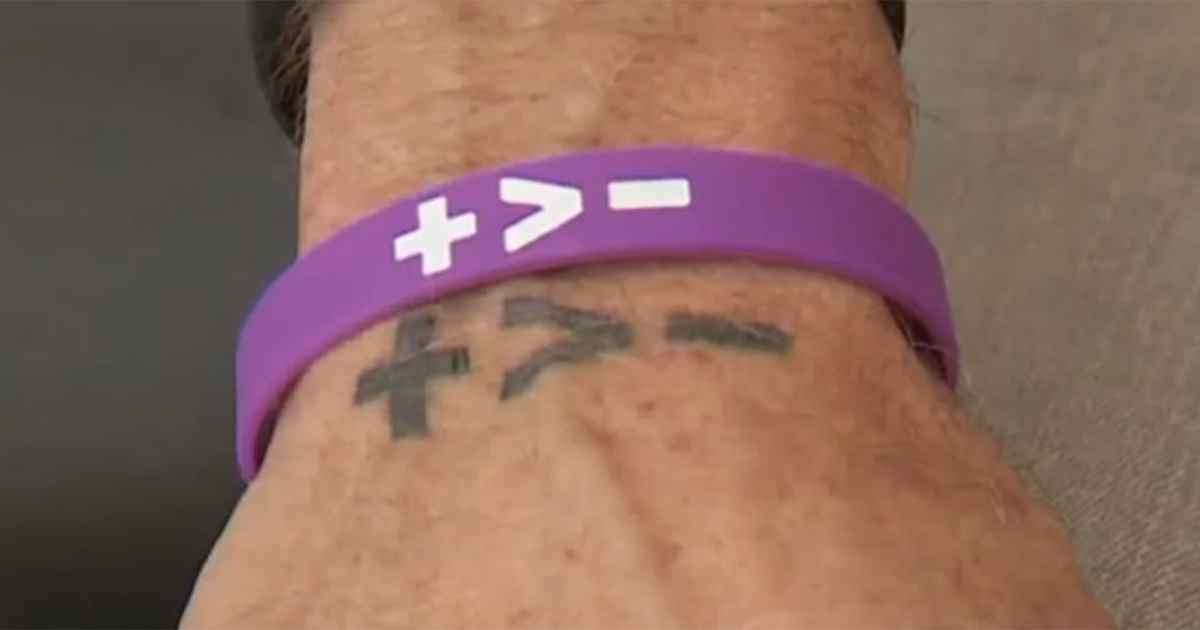Remember: Stay Positive
- Three symbols carrying the underlying message to stay positive are taking over a small city in Tennessee, all thanks to a cancer warrior.
- Richard Suter had + > – tattooed on him three years ago. Its meaning? Positivity is greater than negative a message that carries so much more meaning now that he has been diagnosed with pancreatic cancer.
- Pancreatic cancer is soon to be the second leading cause of cancer death in the United States, SurvivorNet experts say.
What are those three symbols? + > –
Read More
Suter's Pancreatic Cancer Battle
On April 6, Suter was diagnosed with pancreatic cancer. (He has not disclosed the stage of his cancer.) He is currently undergoing chemotherapy treatments.
Suter had been experiencing pain in his abdomen prior to his diagnosis, so on March 30, he visited a gastroenterologist who then scheduled him for an MRI. Two days later, on April 1, his doctor called to tell Suter that he had found a mass on the head of Suter's pancreas that was cause for concern and no, it was not an April Fool's Day joke.
Detecting Pancreatic Cancer Early is Crucial
The next day, April 2, Suter had the mass biopsied. It wasn’t long after that his doctor confirmed Suter's greatest fear: the mass was malignant, and he was diagnosed with pancreatic cancer.
"(My) blood sugar went through the roof from the treatment. I started hallucinating, and I collapsed. I was unconscious. I was in CCU at the hospital," Suter tells News Channel 5.
In order to keep people updated on her husband's progress, Suter's wife started a Facebook page called Richard's Recovery. The + > – was, and still is, prominently displayed on the page.
Little did the couple know it was the beginning of a movement that helped the community to stay positive amid another uncertain, pandemic-filled year. And continued support for Suter!
Remember: Stay Positive
Suter tells the Nashville television station that since his symbol was displayed on the Facebook page, "somebody called me and asked, 'Would you care if I got your tattoo?'" Suter told the person to go for it. "That would be great," he says.
That was the tipping point. All around the small city of Gallatin (population: 44,431), the symbol reminding everyone to stay positive began to pop up on restaurant signs, storefront windows, even lawn signs displayed the symbols: + > –
"Getting to lift people up and let them see the positive side of things that are normally horrific, it's been a blessing," Suter says.

"I've had more good than bad, more happy than sad, more pros than cons than I ever had in my life, which is a strong thing to say when you've been diagnosed with pancreatic cancer," he adds. "No matter what you're going through in life, you can get through that. We rise by lifting others, and man, have I risen."
Understanding Pancreatic Cancer
Dr. Anirban Maitra, of MD Anderson Cancer Center in Houston, Texas, tells SurvivorNet that because the pancreas is inside the abdomen, "it often doesn't have symptoms that would tell you that something is wrong with your pancreas … by the time individuals walk into the clinic with symptoms like jaundice, weight loss, back pain or diabetes, it's often very late in the stage of the disease."
The American Cancer Society estimates that about 60,430 people will be diagnosed with this type of cancer in 2021, and about 48,220 people will die from it, which is to Maitra's point that "most people will die from this disease within a few months to a year or so from the diagnosis," he tells SurvivorNet.
"The reason for that is that most individuals, about 80 percent, will actually present with what we called advanced disease (or metastatic), which means that the cancer has either spread beyond the pancreas or into other organs like the liver, and so you cannot take it out with surgeries," he says.
Dr. Allyson Ocean explains why pancreatic cancer is so hard to treat.
Dr. Allyson Ocean, a medical oncologist at Weill Cornell Medical Center, tells SurvivorNet that pancreatic cancer is soon to be the second leading cause of cancer death in the United States.
"Mortality is rising because it's caught so late," she says, "and we don't have enough effective medications against the cancer."
So, the question in front of oncologists today is: "How can we detect this disease earlier in the process so we can have a better impact on the survival of our patients?" Maitra says.
Learn more about SurvivorNet's rigorous medical review process.


